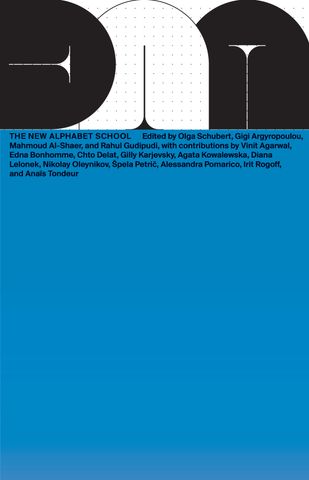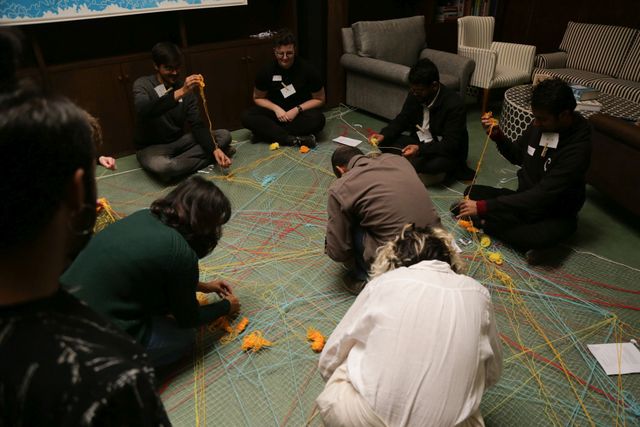The New Alphabet School

Publication series Das Neue Alphabet (The New Alphabet), Volume 22
Editor: Olga Schubert, Gigi Argyropoulou, Mahmoud Al-Shaer and Rahul Gudipudi
Publisher: Spector Books, Leipzig
100 pages, German and English edition
color illustrations, paperback with folded dust cover
ISBN DE: 978–3–95905–659–5
ISBN EN: 978-3-95905-660–1
Price: 10 €
Available at bookstores, mail order buying / postal shopping via the Webshop
Can knowledge be simultaneously locally situated and globally relevant? How is it possible to approach knowledge as a collective practice through the modes of action that produce it, rather than through a hegemonic point of reference? What trajectories of knowledge are produced by situated, militant or emergent practices? The New Alphabet School is an experimental model of collective study that explores situated forms of knowledge, with stops in New Delhi, Athens, Porto, Rafah, Dakar, Warsaw and Berlin. Each gathering is dedicated to a practice and thus a form of knowledge production: Unlearning, Translating, Situating, Coding, Caring, Healing, Instituting, Survivance, Transmitting, Community-Building, Feralizing, and Commoning. This book presents contributions that emerged from these gatherings, while also providing an overview of current methods of practice-based research in the arts, activism and collective research.
With contributions by Vinit Agarwal, Edna Bonhomme, Chto Delat, Gilly Karjevsky, Agata Kowalewska, Diana Lelonek, Nikolay Oleynikov, Špela Petrič, Alessandra Pomarico, Anaïs Tondeur and Irit Rogoff
Table of contents:
Introduction
Olga Schubert, Gigi Argyropoulou, Mahmoud Al-Shaer, Rahul Gudipudi
Common Research
Irit Rogoff
Collective Autotheory: Methodologies for Kindred Knowledge Practices
Gilly Karjevsky
(Re)semblance and Analogia: On Becoming Multiple by Listening in Oyoyo
Vinit Agarwal
Subtle Bodies
Edna Bonhomme
To Re-member to not Forget
Nikolay Oleynikov / Chto Delat with Alessandra Pomarico
In the Cracks of Learning
Alessandra Pomarico
Feralizing
Agata Kowalewska in conversation with Diana Lelonek, Anaïs Tondeur and Špela Petrič

